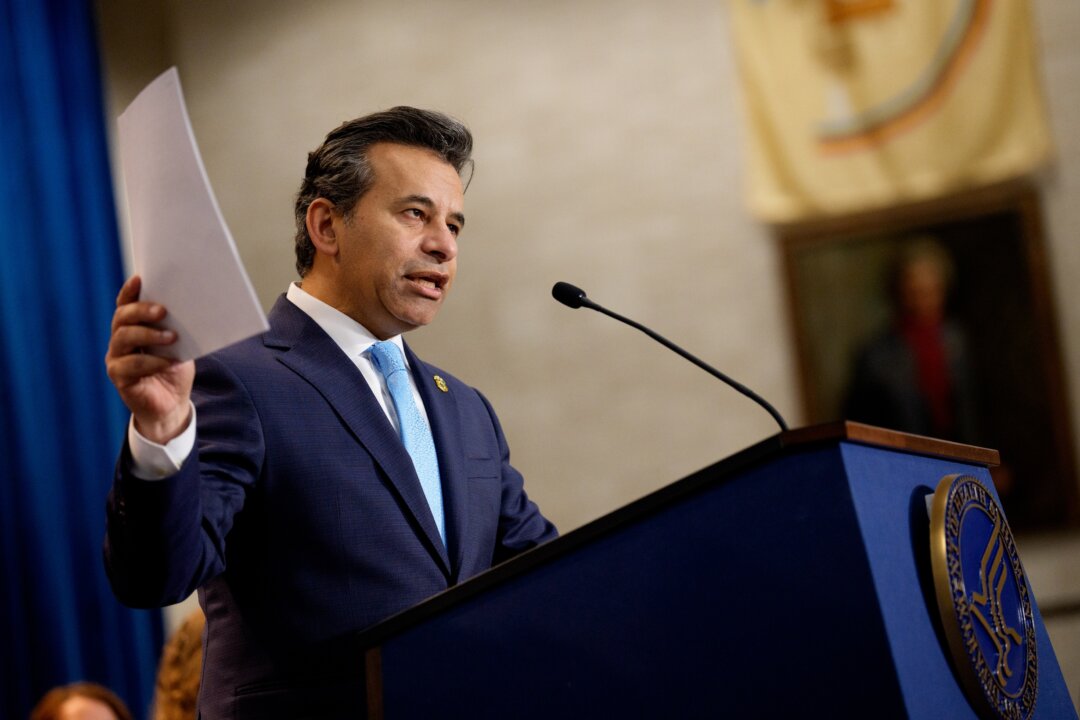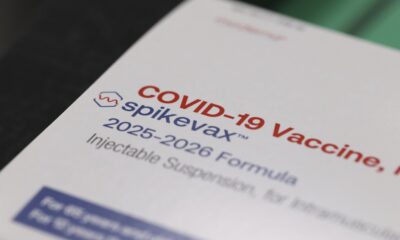Health
FDA Chief Questions Need for Newborn Hepatitis B Vaccination

The head of the Food and Drug Administration (FDA) has raised concerns about the necessity of administering the hepatitis B vaccine to infants immediately after birth. During an interview on September 8, 2023, Dr. Marty Makary, the FDA Commissioner, stated that there is insufficient evidence to support this practice, distinguishing it from vaccines for diseases like polio and measles, which have been well-established over time.
In his remarks on Fox News, Dr. Makary emphasized the need for thorough evaluation of the hepatitis B vaccine’s timing. He remarked, “I personally don’t believe that the evidence is solid to say the Hep B shot needs to be given at birth.” His comments come at a time when the FDA, a division of the Department of Health and Human Services, has approved the administration of hepatitis B vaccines to newborns.
Current Recommendations and Guidelines
The Centers for Disease Control and Prevention (CDC) maintains that all infants should receive the hepatitis B vaccine on the day of birth. This recommendation is part of a broader strategy to combat hepatitis B, which can lead to serious health complications if contracted early in life. The vaccine is designed to protect infants from the virus, which can be transmitted from an infected mother during childbirth.
Despite the CDC’s guidelines, Dr. Makary’s statements have sparked discussions among healthcare professionals and parents regarding the best practices for vaccination schedules. Critics of the current protocol are calling for more evidence to justify the immediate vaccination of newborns against hepatitis B.
As the debate continues, the implications of Dr. Makary’s comments could influence future vaccination policies and public health strategies. The FDA’s endorsement of the hepatitis B vaccine for newborns remains in place, but the call for further scrutiny may lead to changes in recommendations based on emerging evidence.
Vaccination strategies are critical to public health, and decisions surrounding them must be grounded in solid scientific data. As health authorities navigate these discussions, the focus will likely remain on ensuring that infants receive the best possible protection from preventable diseases while addressing parental concerns about vaccine safety and timing.
-

 Technology5 months ago
Technology5 months agoDiscover the Top 10 Calorie Counting Apps of 2025
-

 Health2 months ago
Health2 months agoBella Hadid Shares Health Update After Treatment for Lyme Disease
-

 Health3 months ago
Health3 months agoErin Bates Shares Recovery Update Following Sepsis Complications
-

 Technology4 months ago
Technology4 months agoDiscover How to Reverse Image Search Using ChatGPT Effortlessly
-

 Technology1 month ago
Technology1 month agoDiscover 2025’s Top GPUs for Exceptional 4K Gaming Performance
-

 Technology2 months ago
Technology2 months agoElectric Moto Influencer Surronster Arrested in Tijuana
-

 Technology5 months ago
Technology5 months agoMeta Initiates $60B AI Data Center Expansion, Starting in Ohio
-

 Technology5 months ago
Technology5 months agoRecovering a Suspended TikTok Account: A Step-by-Step Guide
-

 Health4 months ago
Health4 months agoTested: Rab Firewall Mountain Jacket Survives Harsh Conditions
-

 Lifestyle5 months ago
Lifestyle5 months agoBelton Family Reunites After Daughter Survives Hill Country Floods
-

 Technology4 months ago
Technology4 months agoHarmonic Launches AI Chatbot App to Transform Mathematical Reasoning
-

 Technology3 months ago
Technology3 months agoUncovering the Top Five Most Challenging Motorcycles to Ride





















